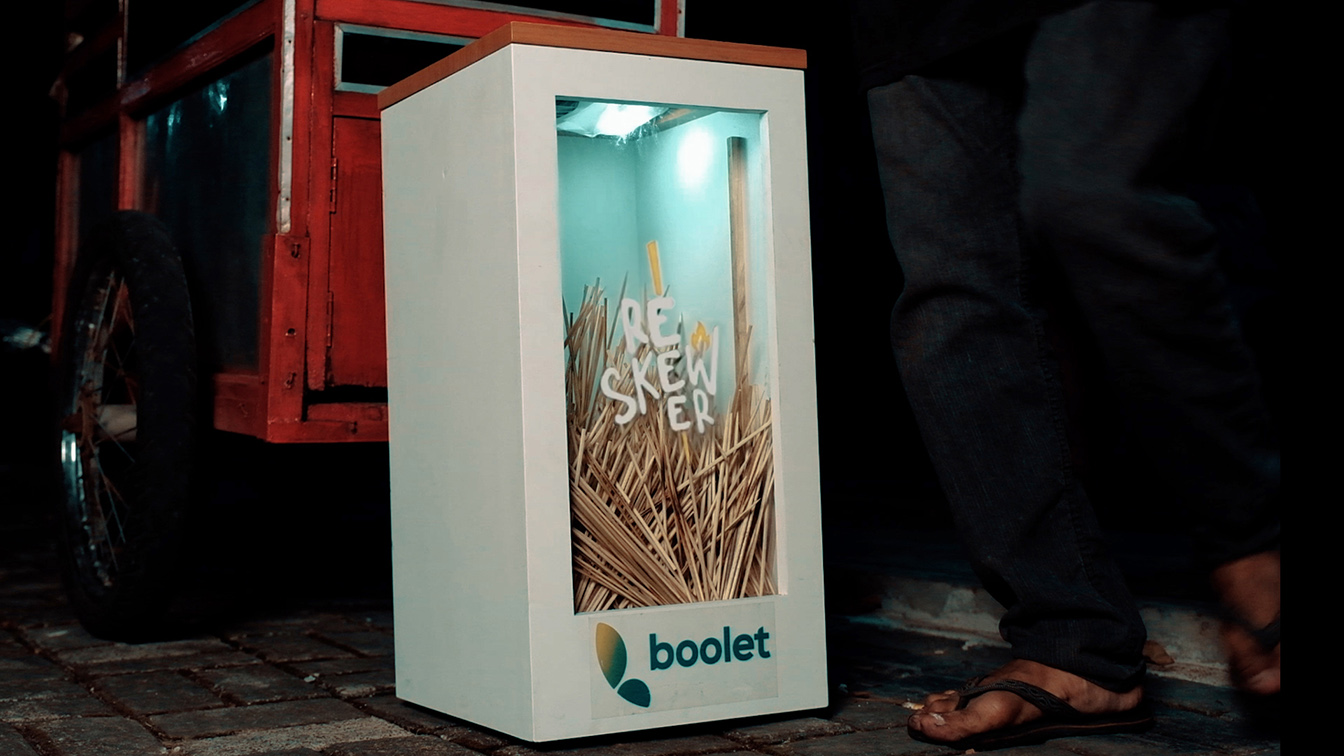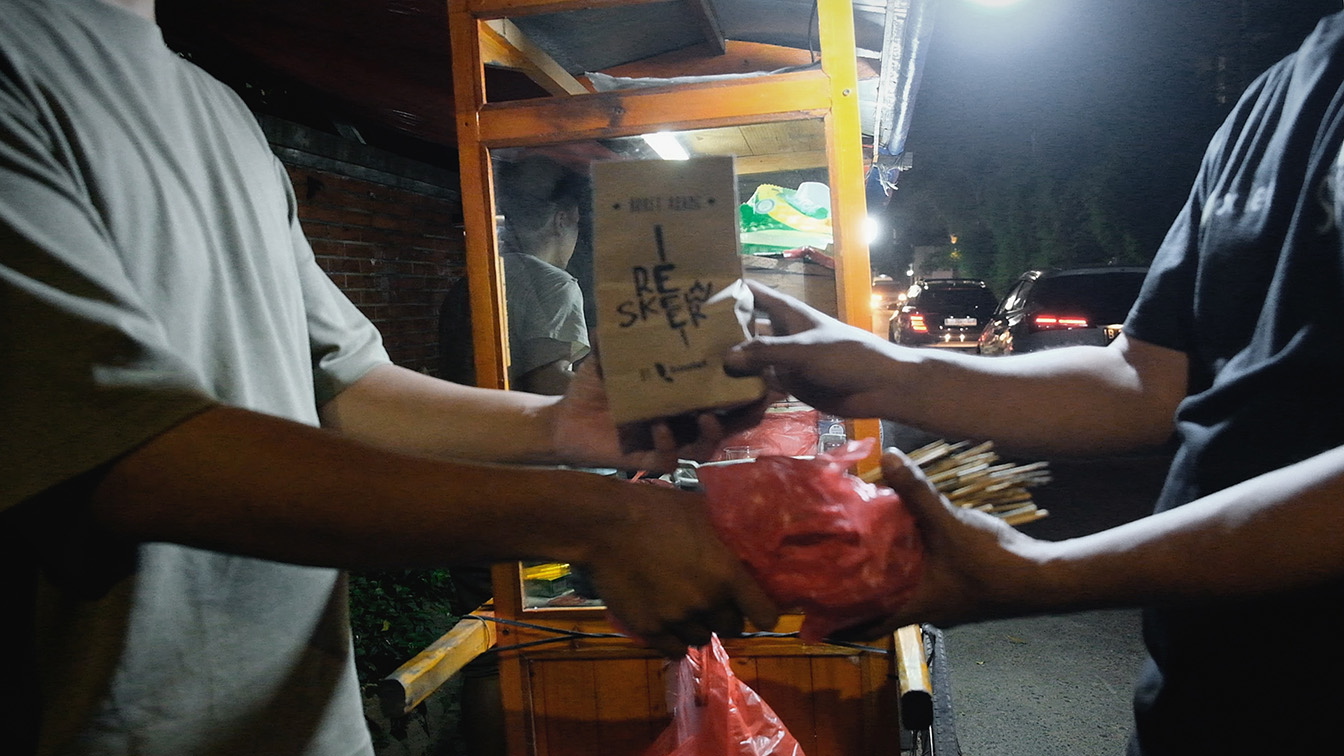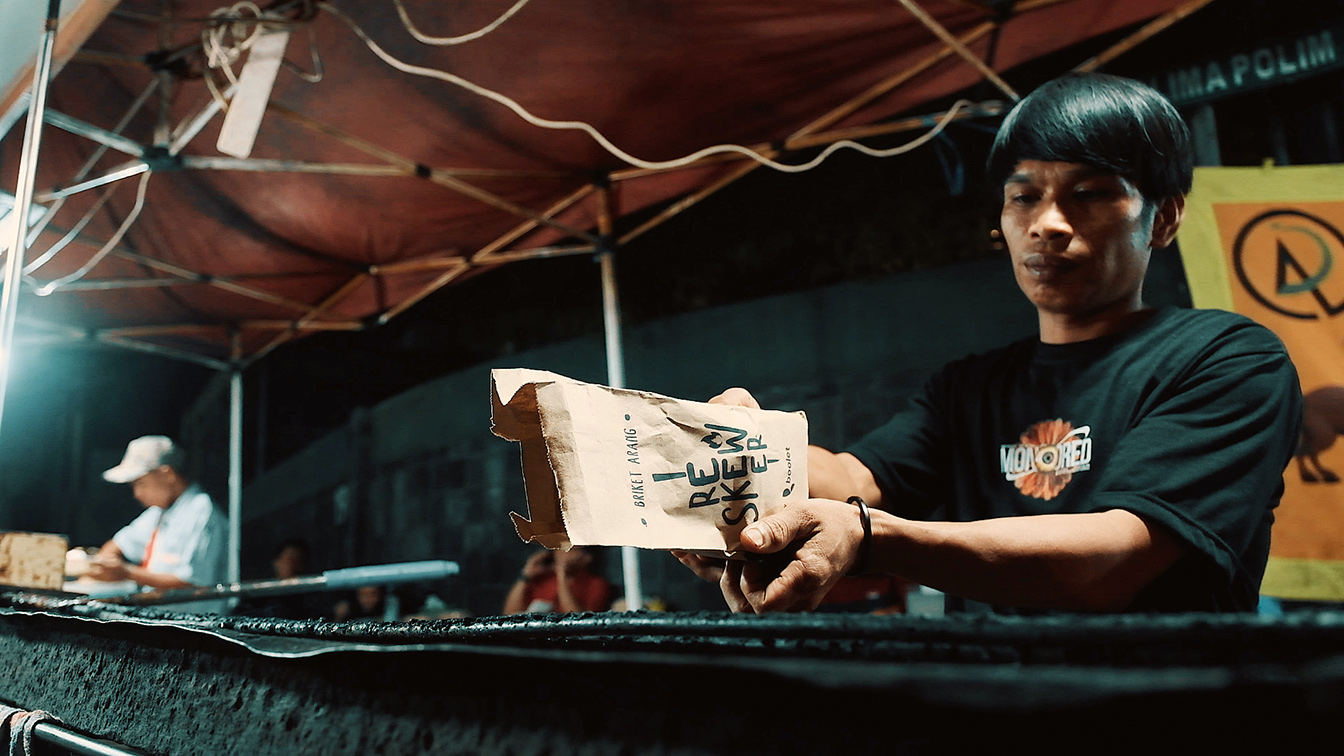Sustainability start-up Boolet tackles satay skewer waste via Dentsu Indonesia initiative
Dentsu Indonesia, in collaboration with local sustainability start-up Boolet, has launched “Re-Skewer”, a campaign aimed at tackling the growing problem of single-use satay skewer waste in Jakarta. By combining education, incentivisation, and upcycling, “Re-Skewer” seeks to transform discarded skewers into valuable, reusable products—while empowering street food vendors and promoting a circular economy.
Indonesia produces an estimated 15,000 tons of single-use chopsticks and skewers each year. In Jakarta, these often end up unmanaged in landfills or scattered in the environment. As they are sharp and difficult to process, skewers not only pose environmental risks, but also physical danger to sanitation workers. Despite the scale of the issue, public awareness and recycling efforts around this type of waste remain minimal.
To bridge this gap, Dentsu Indonesia stepped in to redefine the role of upcycling—developing a new format that would feel relevant, valuable, and practical to the satay vendors themselves. The agency led research and development efforts, consulted with materials labs, and ultimately created a recyclable packaging design for charcoal briquettes made from skewer waste.
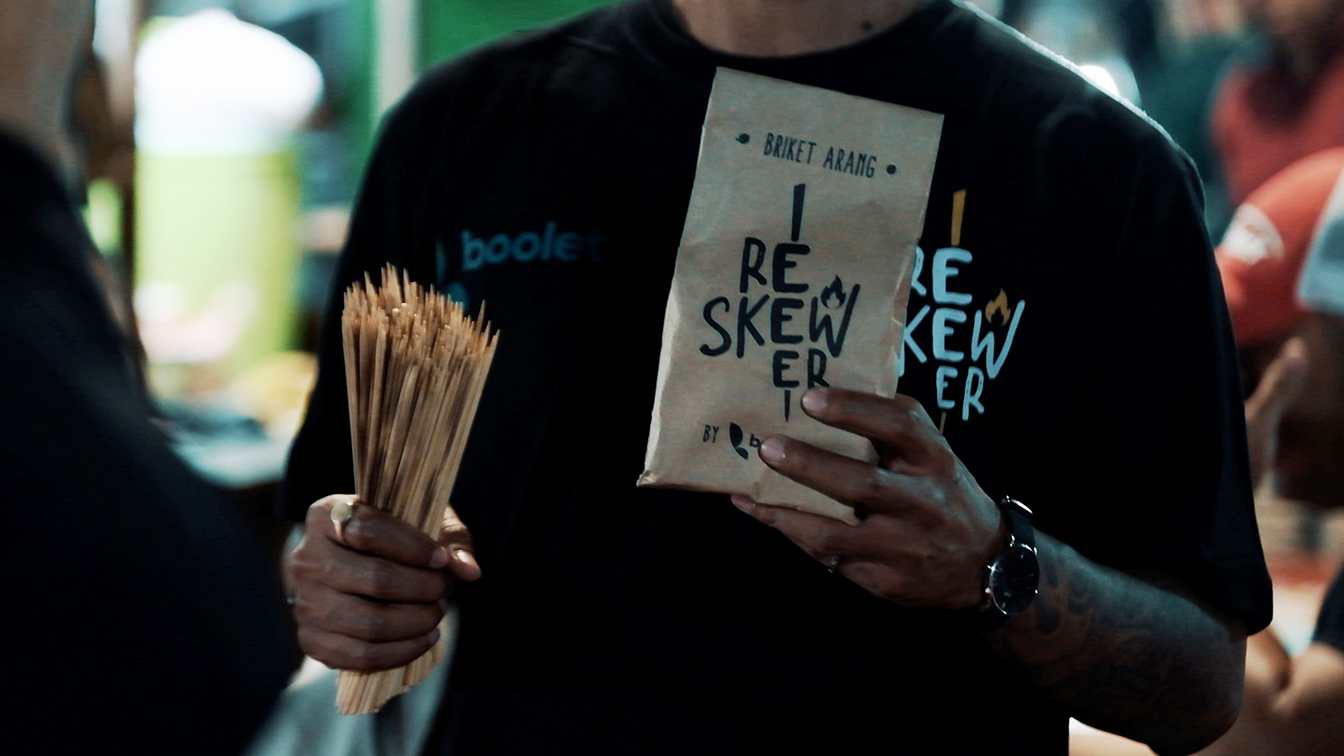
Since its inception, Boolet has centered its mission around the concept of upcycling—turning used satay sticks and chopsticks into wooden lifestyle products such as eyewear frames, phone stands, and coasters. However, up to now, the initiative has relied largely on donations from individuals and corporations. These upcycled products, while sustainable and stylish, often felt disconnected from the daily lives of satay vendors—the very community generating the most skewer waste. As a result, there was little direct engagement between Boolet and the small business (UMKM) sector.
Cindy Susanto (pictured below), Chief Executive Officer, Boolet, said: “Re-Skewer goes beyond a recycling program—it’s a collective movement that invites vendors, consumers, and communities to reimagine waste. Our approach has always been to support the local circular economy, and with dentsu Indonesia’s strategic thinking and culturally rooted approach, we’re aiming to gradually change public behavior and support micro-businesses for the long-term.”
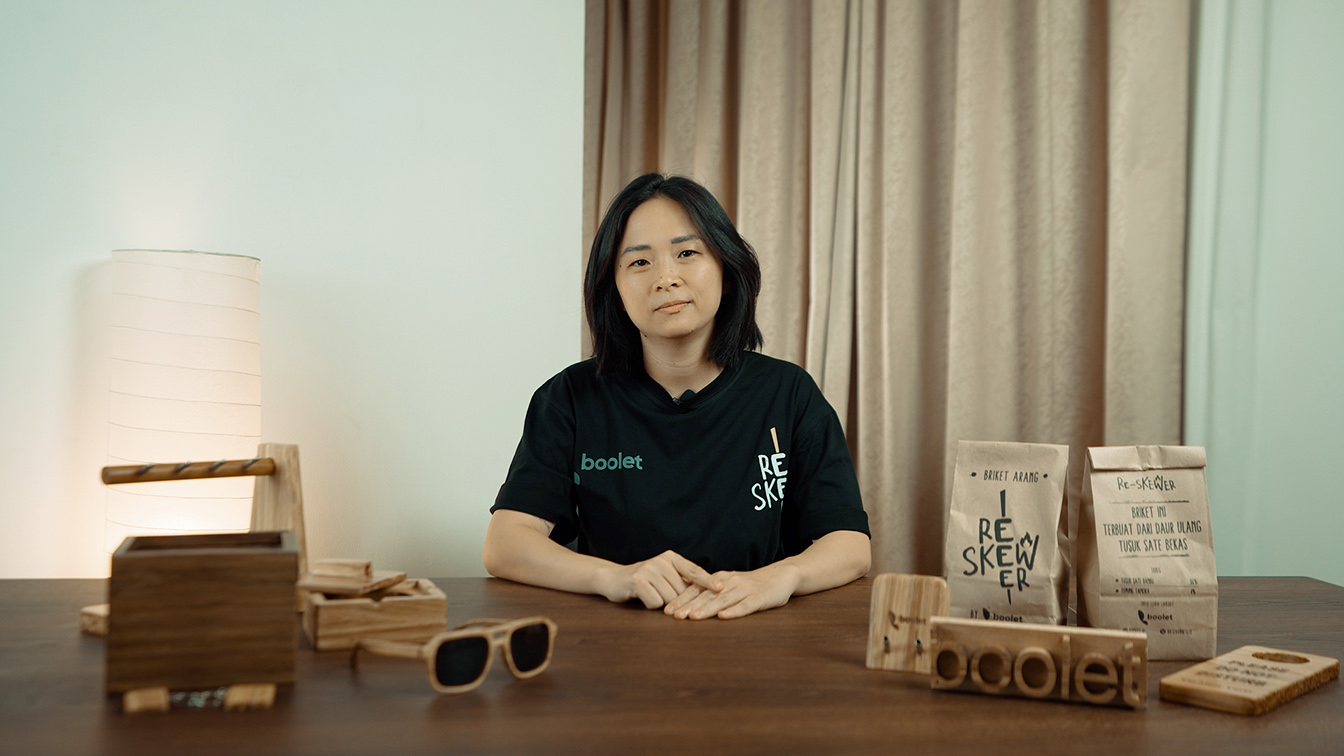
Rangga Immanuel, Executive Creative Director, Dentsu Creative Indonesia, said: “One skewer at a time; with ‘Re-Skewer’, our team focused on designing a campaign that not only addresses a pressing waste issue but also delivers real value to the community. It shows how creativity, when grounded in empathy and local culture, can create tangible impact.”
Within just one day of activation, the campaign succeeded in collecting enough skewer waste to distribute 45 kilograms of charcoal briquettes. This initiative has helped to reduce unmanaged landfill waste, introduce street vendors to the principles of the circular economy, and cut operational costs through fuel substitution. The campaign has earned a bronze award at Citra Pariwara 2024 for the best Activity/Event/Ambient/User Experience.
Following this early success, Boolet plans to expand the campaign across other cities, inviting broader public and vendor participation. The long-term vision includes scaling up recycling capacity and developing new upcycled product lines through partnerships with local artisans.
